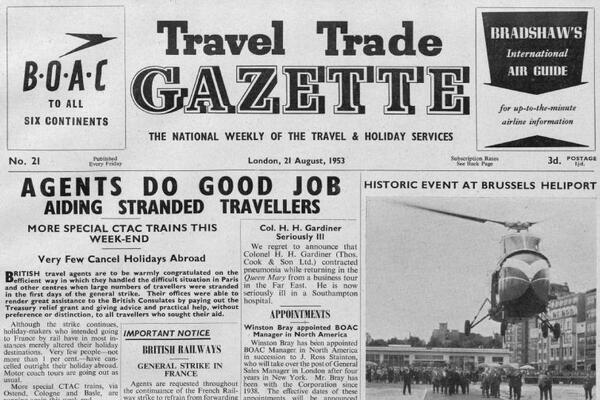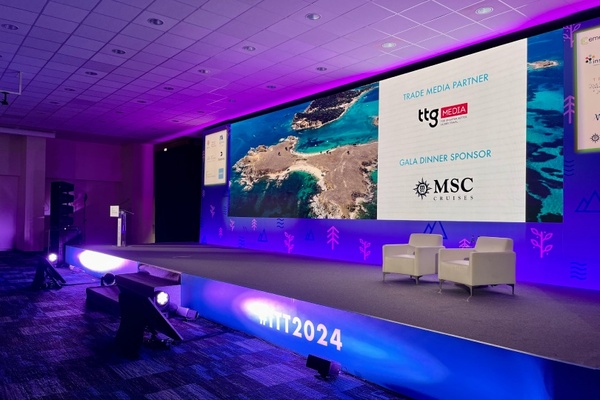'AI can't replace your un-Googleable knowledge,' agents told
 James Chapple
James ChappleAI won’t be able to replace "the un-Googleable stuff" that travel agents trade off, 2024 ITT conference delegates have been told.
Speaker Clare de Bono’s positive take on travel’s burgeoning relationship with AI did, however, come with a caveat, as she cautioned the sector against forgetting "the human element" that curates so many travel transactions and relationships.
De Bono, who is Amadeus’s associate director – strategy and transformation and also Amadeus UK country manager, said with AI already powering many of the tools being used by travel professionals, especially in marketing, its use would undoubtedly be felt "throughout the entire travel experience".
Addressing delegates in Halkidiki, de Bono said AI was likely to have an economic impact worth around $2.5 trillion, about 10% of which would impact travel and tourism specifically. Of that 10%, citing McKinsey data, de Bono said 80% would fall in two main areas – 60% in the travel and inspiration phases, and 22% in customer service.
Using an example from Amadeus, which she said had been employing AI for more than 20 years, de Bono said the GDS provider could now decypher billions of computations to deliver 250 concise recommendations by price and convenience in a matter of seconds from a London-San Francisco flight search.
Of the hundreds of potential areas AI could be deployed, de Bono highlighted how onboarding could be made more conversational to help new starters get their heads around complex functions, as well as conversational booking engines where purchases play out more intuitively rather than via a prescribed series of prompts.
"There are some amazing use cases for travel that will really be able to help us bring that human touch to conversational interfaces," she said.
Another was using generative AI to create automated landing pages, which are SEO optimised with images, price trends, directions and activities, and can be generated not only on a language-by-language or market-by-market basis, but on the basis of travellers’ profiles or travel preferences, such as what they like to do on holiday.
Agents ’curating something special’
However, she asked: "Where’s the travel agent in all of this?," adding: "We can’t forget the human element. AI can make great suggestions – it can index millions of web pages and predict where you’re going to point, it can translate from one language to another in real-time.
"All that can help you – but you know the un-Googleable stuff. You know what your customers like. You know what their preferences are. You know the ones that are autistics, the ones that have pet hates. You are curating something special."
De Bono said travel’s relationship with generative AI fell into the Gartner hype cycle where, following an "innovation trigger" like the emergence of generative AI, it was now "reaching a peak of inflated expectations where there is more hype than proof".
"As that excitement wears off and we try to prove ROI, you get into a trough of disillusionment before being able to realise the actual value," she said. "If I was to pitch where generative AI is right now, it’s some at the top of the peak of inflated expectations."
De Bono also highlighted some of the drawbacks inherent in generative AI, such as the legitimacy of the data underpinning a particular model, and its biases.
"There is massive human intervention in each step of AI training," she said. "Who are the people doing this training? What are their conscious or unconscious biases? To be honest, a lot of the information on the web is pretty male and Anglo-Saxon."
She said there was an "evolving regulatory framework" around AI making things safer and more transparent, with efforts in the US, UK and Europe sharing "common principles" ensuring AI systems are explainable, sustainable, and have people responsible for them. She added Amadeus now had an AI board and AI centre of excellence.
’AI is our golden age’
De Bono observed that despite the onset of new technologies, travel remained "a highly complex field where getting the details right mattered".
She highlighted commentary from Expedia on ChatGPT, aspects of which it has build into its live chat services. "Travellers still care about the end-to-end seamless experience," she said, citing Expedia.
"And that’s where decades of experience, data, knowledge and travel preferences is still important. Chat GPT can plan an itinerary, but it can’t help if something goes wrong."

De Bono said it was vital agents adjusted their mindset from "how is this going to hurt me?" to "how is this going to help me?". "Predicting the death of the travel agent has been going on since the beginning of the internet," she said. "And we’re still here."
Every generation, said de Bono, has a "golden age of travel" – from the rise of jet travel in the 1950s and the subsequent democratisation of travel with the advent of the package holiday in the 1970s to the dotcom period of the 1990s and 2000s, which she said made the whole world agents’ customers.
"I would say AI is our era," she added. "It’s equipping the industry to reimagine what it means to plan, book, manage and experience travel."
Sign up for weekday travel news and analysis straight to your inbox

James Chapple
Supplier Directory
Find contacts for 260+ travel suppliers. Type name, company or destination.














